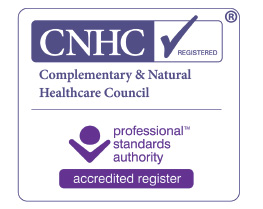I am a professional musician - singer, guitar, piano and saxophone. I've toured the world and performed in tiny places and prestigious theatres. In this sphere alone I've honed my performance skills through general experience and through greater awareness of the AT. I've also seen plenty of examples of physical and mental problems among performers, stage technicians and touring crew.
My early career background was in Health and Social Care, working among service users right across the board to help them speak up about the services they use. As a studio owner for several years, I worked with people with various needs: mental health, learning disability, children, adults, all of whom responded well to vocal coaching and events that we held.
AT and Me
My family has long had an interest in the Alexander Technique as well as music. You can read about the family and the music here. When touring with my father (who trained as an AT teacher in New York) or my partner Christian we're often to be found working on each other just before going on stage.
My first direct contact with AT was when I was organising a conference for service users in Cardiff. As part of a whole menu of well-being experts, I invited Cardiff teacher Tim Kjeldsen to present a session. Of course I didn't think I needed lessons myself until, consulting a GP about niggling lower back pain and being prescribed the usual back exercises, I thought I would get some lessons with Tim. He was great and I would often turn up at his teaching room feeling a mental wreck and leave feeling immensely better.
Then, one day on tour, I wondered what on earth I was to do with my life. I enjoyed vocal coaching and the great difference it made to people generally. Training in AT seemed a stable grounding for better music coaching skills.
I started training in 2018 at the Alexander Re-Education Centre in Oxfordshire with Ron Colyer (who trained with Walter Carrington, who in turn trained with FM Alexander himself) and Frankie Stringer (who trained with John and Carolyn Nicholls). The course consists of 1600 hours over three years. We learn how to work on ourselves and each other, and later in the course, on volunteer pupils.
We learn some anatomy, about the skeleton, muscles, ligaments, organs, the nervous system and reflexes. While this does not constitute medical training, it helps us to understand what's going on in the body as we work.The pandemic provided some challenges on the course, as of course we weren't able to work in person with each other for some time, but we persevered and came through with a unique experience, a little longer than planned. We learned that AT can make us deal with unexpected events with resilience and patience.
What are those letters after my name?
MSTAT means member of the Society of Teachers of the Alexander Technique. Once we've completed the training to the approval of the society, we can use those letters. I am also a member of the UK regulatory body CNHC (Complementary and Natural Health Council).
BA (Hons) in English Literature at Cardiff University, where I met my partner Christian and spent most of my time putting on musical events.
MSc in Social Science Research Methods, Cardiff University, during which I conducted research in a day centre for homeless people in Cardiff. This led to jobs in Housing, Homelessness, and the wider Health and Social Care Field in Cardiff, working between voluntary and statutory sectors.

